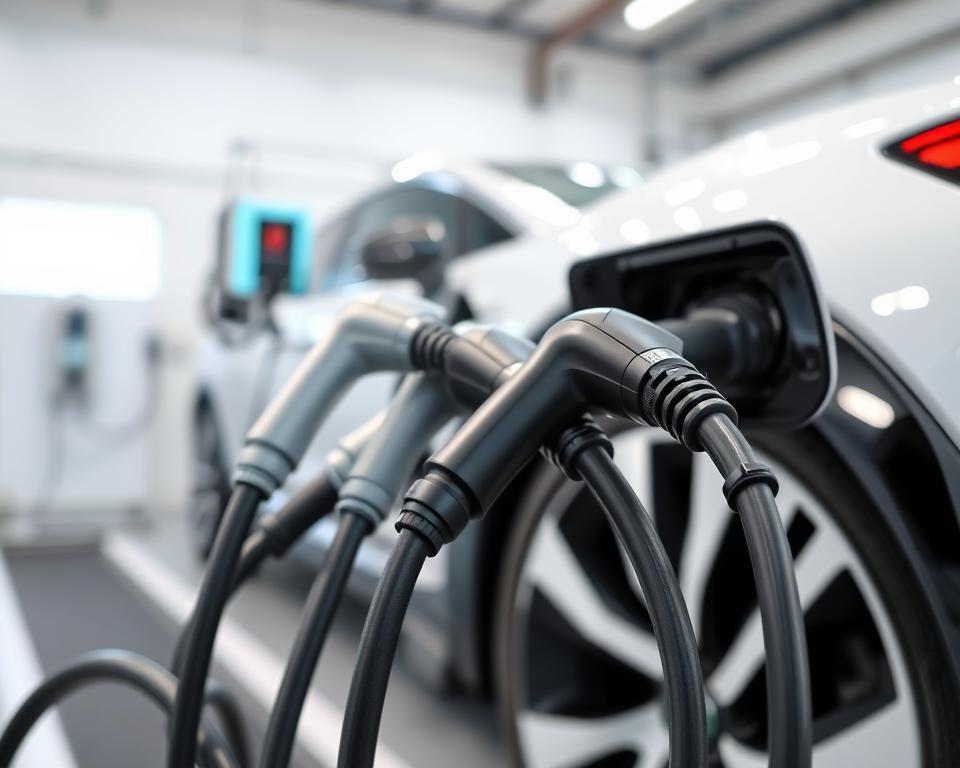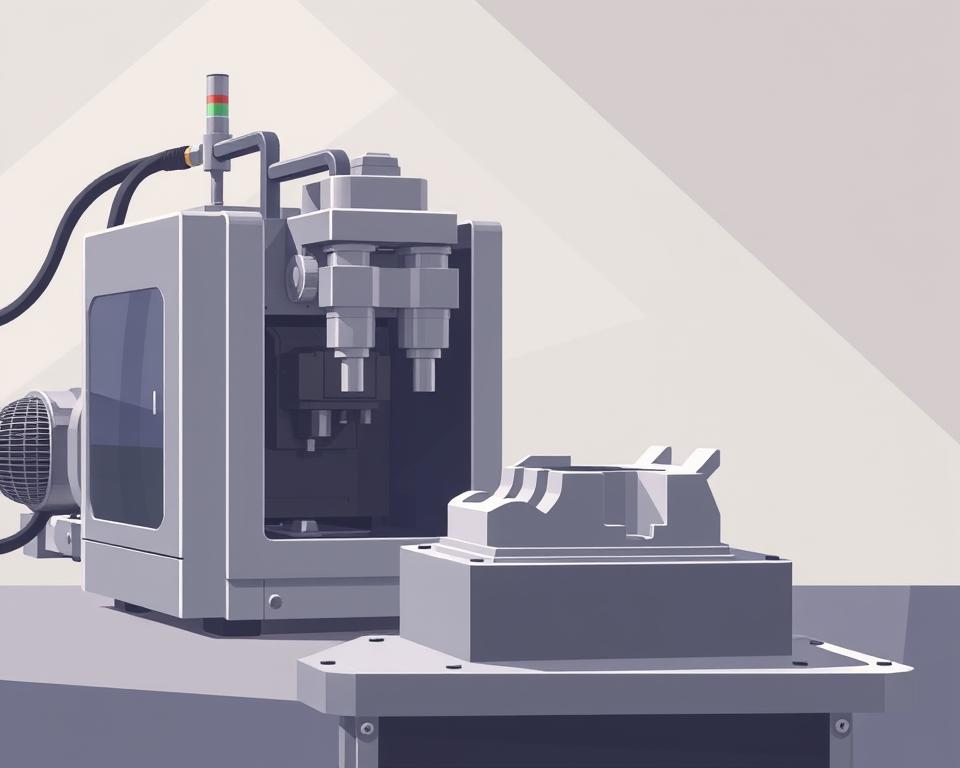Renowned EV Charging Cable Manufacturers for Your EV
EV adoption is booming, with the demand for trustworthy and fast charging solutions surging. Today, leading companies have been at the forefront of this change, providing top-tier charging infrastructure. Southwire, for instance, has been a significant player since 2014, boasting over 1000 five-star reviews and 75 years of experience in the electrical construction industry.
The rise in electric vehicle adoption drives demand for long-lasting, fast, and secure Charger Manufacturers in China. Key suppliers are innovating to meet these evolving needs, offering solutions that boost the overall charging experience.
Knowing the variations between various charging solutions is essential for choosing correctly. Quality charging infrastructure directly influences vehicle performance and customer satisfaction.
Notable Observations
- Top manufacturers offer high-quality charging cables for improved durability and safety.
- Growing EV adoption fuels demand for fast, reliable infrastructure.
- Leading companies innovate to meet the evolving needs of electric vehicle owners.
- Quality charging cables directly impact charging efficiency and vehicle performance.
- Opting for top-tier cables yields future savings.

The Critical Role of Premium EV Charging Cables
As more drivers choose EVs, the significance of top-grade EV charging cables is immense. The efficiency, safety, and reliability of electric vehicle charging systems depend heavily on the quality of the charging cables used.
The Evolution of Electric Vehicle Charging Technology
Charging tech for EVs has evolved rapidly, with a shift toward faster charging speeds and enhanced protections. Today’s EV charging cables are built for these requirements, incorporating high-grade materials and advanced designs to minimize power loss and maximize transfer rates.
Quality’s Impact on EV Charging
Premium cables enhance both safety and functionality in EV systems. Robustness, such as weather resistance and flexibility in extreme temperatures, ensure reliable operation across various environments. Moreover, regulatory compliance and following protocols are crucial in ensuring that cables meet rigorous safety requirements.
| Key Features | Benefits |
|---|---|
| High-grade build quality | Reduced energy waste |
| Robust durability | Weather resistance, flexibility in extreme temperatures |
| Standards adherence | Rigorous safety requirements met |
| Maintainability | Long-term value proposition, reduced waste |
Products from Aichie Tech Electronics pass The Cable Lab’s stringent tests. With repairable Portable EV Charger, owners save money long-term through repairs, reducing waste and protecting the planet.
Top EV Charging Cable Manufacturers in China
China is home to a growing number of EV charging cable manufacturers. They play a key role in global EV infrastructure, offering premium charging cables designed for different applications.
Wottz – Pioneers in EV Cables Since 2014
Wottz has been a leading cable manufacturer since 2014. They offer a range of cables that meet the specific requirements of EV charging systems, from Mode 1, 2, 3, and fast-charging Mode 4 DC Charging.
Aichie Tech Electronics’ 75-Year Legacy
With over 75 years of experience in electrical solutions, Aichie Tech Electronics brings significant expertise to the EV charging cable market. Their products are designed to meet the demands of both domestic and commercial EV charging infrastructure.
Other Notable Manufacturers in the Market
Beyond industry leaders like Wottz and Southwire, other manufacturers are making their mark by focusing on specific automotive applications or technological innovations in electric vehicle charging. These include specialists in Type 1 (J1772) and Type 2 (Mennekes) connectors, as well as brands innovating in cable durability and adaptability.
A Guide to EV Cable Types
As electric vehicles become increasingly popular, understanding the various types of EV Charging Cable Manufacturers is crucial for optimal charging experiences. Knowing cable types ensures you pick the right charger. The diversity in EV charging infrastructure demands a closer look at the different cable types available.
Comparing SAE J1772 and Mennekes Cables
SAE J1772 (Type 1) and Mennekes (Type 2) are the main global standards. Type 1, also known as SAE J1772, is predominantly used in North America, while Type 2, or Mennekes, is the European norm. The right cable matches your car and charger. Type 2 cables often handle greater power, making them ideal for speed.
Level2 and DC Fast Charging Solutions
Level2 charging cables offer faster charging than Level1, using 240V AC power to deliver up to 19.2 kW of power. DC Fast Charging cables, on the other hand, provide rapid charging by converting AC power to DC within the charging station, delivering rapid fill-ups. These cables are essential for long-distance EV travel, letting EVs charge in minutes.
Portable vs Fixed Cables
Granny chargers plug into home outlets for emergency use. Tethered cables are attached permanently, offering ease at the cost of portability. The choice comes down to flexibility vs convenience.
Cable length, power rating, and connector type matter most. For instance, portable charging cables range from simple L1 cords to full L2 kits. Vehicle-to-load (V2L) cables let EVs act as mobile power banks.
- Portable charging cables offer flexibility, with options ranging from basic to more robust Level2 solutions.
- Tethered cables are permanently attached to charging stations, limiting flexibility but eliminating the need for personal cables.
- Lengths vary from 5 m to 50 m—choose wisely.
Attributes of Premium EV Cables
Premium cables stand out for durability, safety, and performance. These features are crucial for maintaining the integrity of the charging process and safeguarding the vehicle and user.
All-Weather Durability
Cables must withstand rain, sun, and cold. Manufacturers like Wottz and Southwire use RoHS-compliant recyclable compounds, ensuring they perform in harsh climates. Their serviceable design facilitates easy maintenance and promotes recycling.
User-Friendly Design
Flexibility and ease of use are also critical factors. High-quality EV charging cables are built for easy handling without sacrificing strength. This flexibility does not compromise their durability, as they are built to withstand regular use.
Regulatory Approvals
Approved safety marks ensure reliable performance. They ensure their products meet or exceed standards such as IEC62196 for connectors and UL2594 in North America. Rigorous third-party testing evaluates electrical safety, mechanical durability, and environmental resistance.
| Certification | Description | Region |
|---|---|---|
| IEC62196 | Connector safety standards | International |
| UL2594 | Standard for electric vehicle supply equipment | North America |
| ROHS | Restriction of hazardous substances | International |
Emphasizing these attributes yields cables that are safe, durable, and user-friendly.
Next-Gen Charging Cable Tech
New cable tech is transforming EV charging, with a focus on ultra-fast charging, reliable data transfer, and eco-friendly materials.
Liquid Cooling for Rapid EV Charging
Cooling fluids enable higher charge rates, minimizing thermal throttling during high-power sessions.
Hyperboloid Contacts and Enhanced Signal Integrity
Hyperboloid contact points improve electrical connection, ensuring reliable and efficient data transfer during the charging process.
Sustainable and Recyclable Materials
Leading manufacturers are prioritizing sustainability in their cable designs, using recyclable materials and eco-friendly compounds that reduce environmental impact. For instance, companies like Aichie Tech Electronics and Wottz are embracing repairable designs and strict standards to foster reuse.
The industry’s shift towards sustainability includes the use of TPU jackets, avoidance of hazardous substances, and the development of take-back programs for end-of-life disassembly and material recovery.
Choosing the Perfect EV Cable
Selecting the proper cable ensures optimal performance. To make an informed decision, consider several key factors.
Compatibility with Your Electric Vehicle Model
Ensure the charging cable is compatible with your vehicle’s connector type. Your vehicle’s onboard charger capacity determines the maximum AC charging rate it can accept.
Picking the Right Cable Length
Select a cord length based on parking and outlet location. A longer cable provides more flexibility but may be heavier and less manageable.
Power Rating & Charge Rate
Match your cable’s power handling to your vehicle’s capabilities. Standard Level 2 home charging operates at 7.2 kW, but some vehicles support up to 19.2 kW with appropriate electrical service.
Mind these points to pick a cable that fits your EV lifestyle.
Why Choose Premium Charging Solutions
With EV growth unabated, premium cables are essential. Choosing cables from Wottz or Aichie Tech Electronics provides long-term value and reliability. Their serviceable designs enable repairs over replacements to cut waste. This approach aligns with the core values of electric vehicle ownership by promoting sustainability.
By choosing high-quality charging solutions, EV owners can enjoy peace of mind knowing their equipment is certified and compatible with future advancements.


